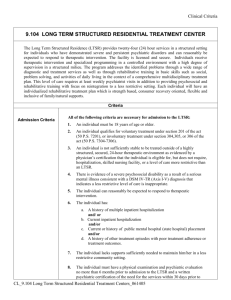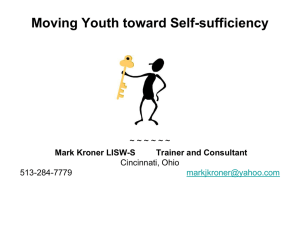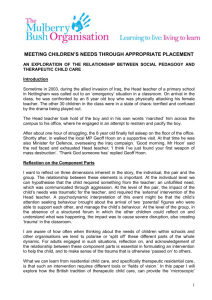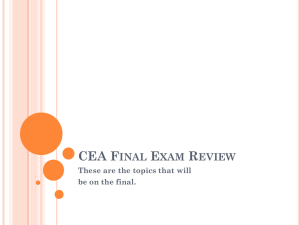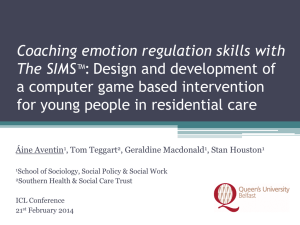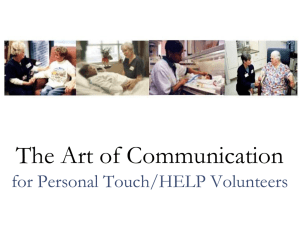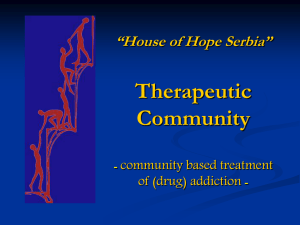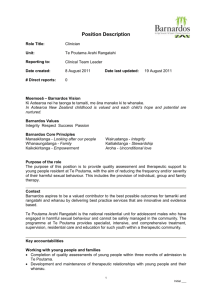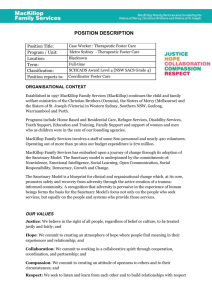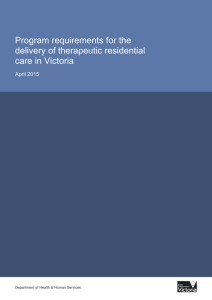Residential Placements - Children`s Law Center
advertisement
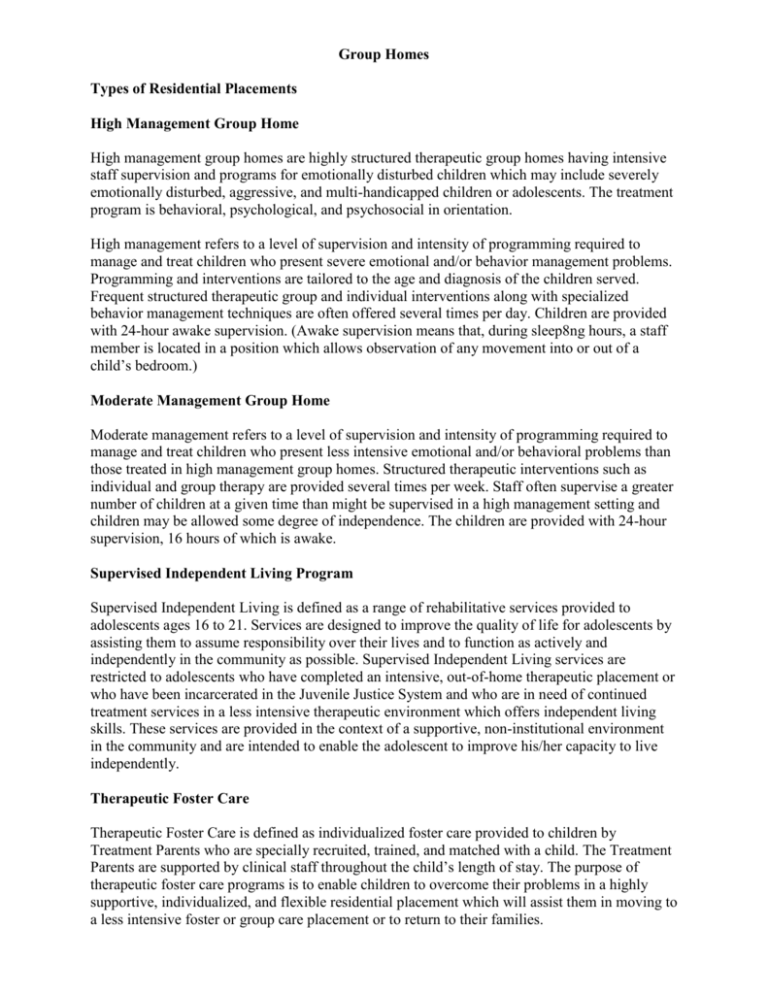
Group Homes Types of Residential Placements High Management Group Home High management group homes are highly structured therapeutic group homes having intensive staff supervision and programs for emotionally disturbed children which may include severely emotionally disturbed, aggressive, and multi-handicapped children or adolescents. The treatment program is behavioral, psychological, and psychosocial in orientation. High management refers to a level of supervision and intensity of programming required to manage and treat children who present severe emotional and/or behavior management problems. Programming and interventions are tailored to the age and diagnosis of the children served. Frequent structured therapeutic group and individual interventions along with specialized behavior management techniques are often offered several times per day. Children are provided with 24-hour awake supervision. (Awake supervision means that, during sleep8ng hours, a staff member is located in a position which allows observation of any movement into or out of a child’s bedroom.) Moderate Management Group Home Moderate management refers to a level of supervision and intensity of programming required to manage and treat children who present less intensive emotional and/or behavioral problems than those treated in high management group homes. Structured therapeutic interventions such as individual and group therapy are provided several times per week. Staff often supervise a greater number of children at a given time than might be supervised in a high management setting and children may be allowed some degree of independence. The children are provided with 24-hour supervision, 16 hours of which is awake. Supervised Independent Living Program Supervised Independent Living is defined as a range of rehabilitative services provided to adolescents ages 16 to 21. Services are designed to improve the quality of life for adolescents by assisting them to assume responsibility over their lives and to function as actively and independently in the community as possible. Supervised Independent Living services are restricted to adolescents who have completed an intensive, out-of-home therapeutic placement or who have been incarcerated in the Juvenile Justice System and who are in need of continued treatment services in a less intensive therapeutic environment which offers independent living skills. These services are provided in the context of a supportive, non-institutional environment in the community and are intended to enable the adolescent to improve his/her capacity to live independently. Therapeutic Foster Care Therapeutic Foster Care is defined as individualized foster care provided to children by Treatment Parents who are specially recruited, trained, and matched with a child. The Treatment Parents are supported by clinical staff throughout the child’s length of stay. The purpose of therapeutic foster care programs is to enable children to overcome their problems in a highly supportive, individualized, and flexible residential placement which will assist them in moving to a less intensive foster or group care placement or to return to their families. Residential Treatment Facility A Residential Treatment Facility provides for the diagnosis and treatment of severely emotionally disturbed or mentally ill children who require less than acute inpatient care, but who need a structured environment with intensive treatment services. The “hospital-like” treatment program is designed to stabilize a crisis or to provide long-term care. Services are physician driven and include input from nurses, social workers, psychologists, and other clinical staff. Full services are delivered within a centralized residential setting, including medical, educational, psychosocial, and recreational activities. Web addresses for agencies licensing group homes and a list of current group homes providing services: South Carolina Department of Social Services http://www.state.sc.us/dss/fosterhome/index.html Mailing Address: South Carolina Department of Social Services P.O. Box 1520 Columbia, SC 29202-1520 Telephone: 803-898-7318 South Carolina Department of Juvenile Justice http://www.state.sc.us/djj/facilities.htm#evaluation_centers Street Address: South Carolina Department of Juvenile Justice 4900 Broad River Rd. Columbia, SC 29212 Mailing Address: PO Box 21069 Columbia, SC 29221 Telephone: 803.896.9749 South Carolina Association of Children’s Homes and Family Services http://www.scchildandfamily.org/ 133 Powell Drive Lexington, SC 29072 Phone: 803-996-5437 Fax: 803-996-5438 Email: scachfs@sc.rr.com The Association exists to help its members provide high quality services. It was created to unite providers of services to children and their families and to give them an organization through which to gain knowledge, share ideas, and work collaboratively to strengthen the system of care for children. The Association provides and promotes: high standards for services professional development advocacy for the children served and the system of care supportive services for members' programs and staff information regarding resources for children and families The Association is a non-profit 501(c)(3) membership organization composed of private providers, public agencies, and a foundation. Private sector members offer a continuum of services, including the following: residential group care residential treatment family foster care emergency shelter adoption services supervised independent living wilderness camping charter schools and private educational programs clinical day programs crisis programs specialty services for children and youth who are part of a sibling group or who are sexually reactive, pregnant, sensory impaired, developmentally delayed, dually diagnosed, emotionally disturbed, autistic, or sexual offenders
